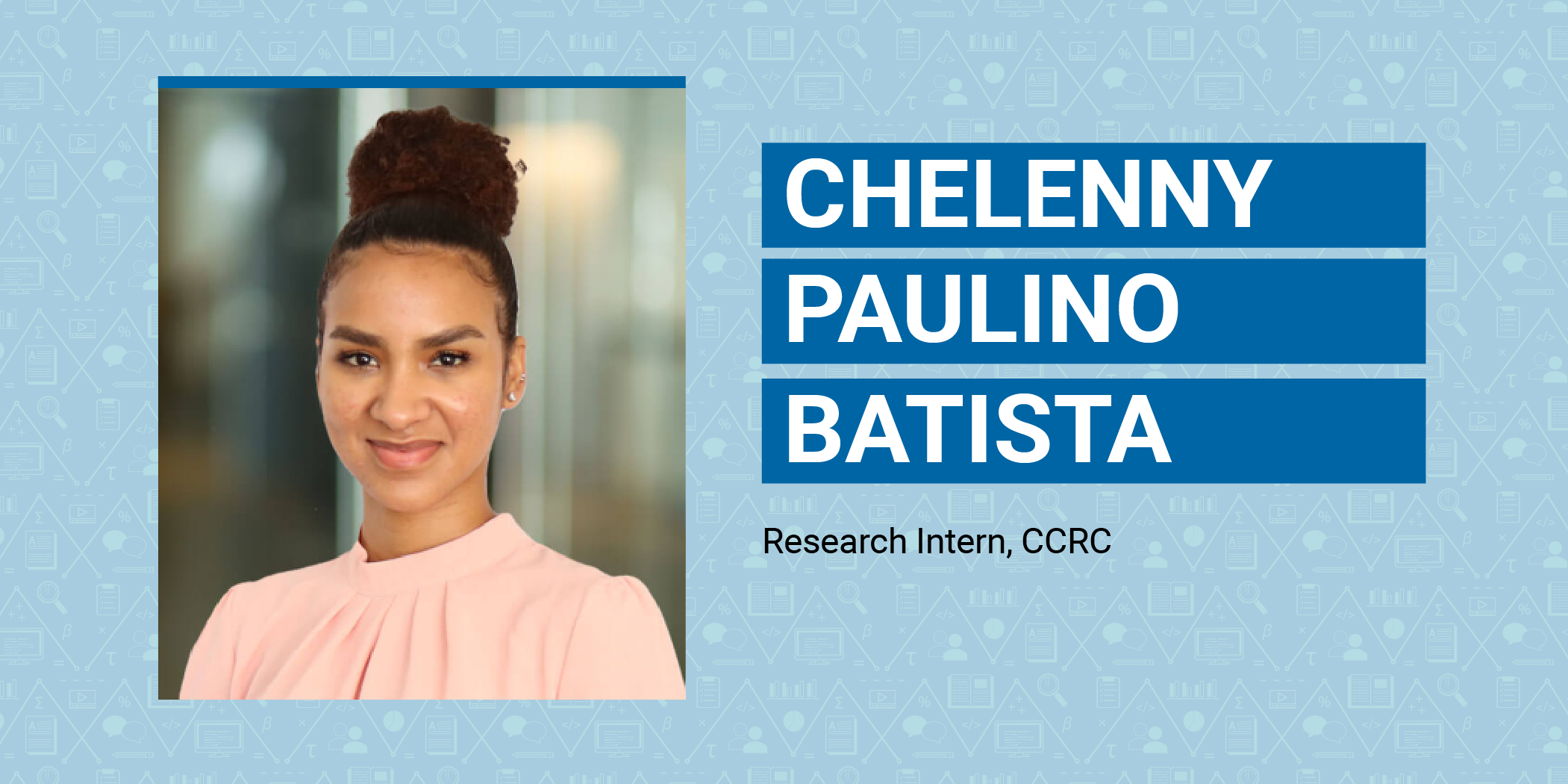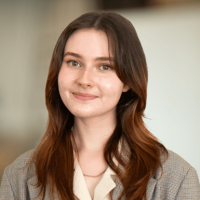Chelenny Paulino is a rising senior at the City College of New York. This summer, she is interning at CCRC as a research assistant and is participating in a study aimed at understanding the support networks of first-generation students in California colleges. In this Q&A, find out more about how research fits into Paulino’s career plans and how she has been contributing to her team’s work.
This Q&A has been condensed and edited.
Klaudia Wiacek: Tell me a little bit about yourself.
Chelenny Paulino: I am originally from the Dominican Republic, so I was born and raised over there, and I came to the United States when I was 11 years old. I had zero knowledge of English, so that is something I learned through the years. I am currently an undergraduate at the City College of New York, and I am double majoring in psychology and Romance languages with a focus on Spanish. I am a part of the S Jay Levy Fellowship, which is how I was able to intern at CCRC this summer.
Wiacek: What drew you to pursue these majors?
Paulino: In terms of research, psychology is what I wanted to focus on the most. I want to start off with research so I can build up from there and start my own practice because I’m mainly focused on clinical psychology. There’s a little bit of psychology in everything that you do in your life. Regarding Romance languages, I have always had a passion for learning more about other cultures, and I strongly believe that one of the best ways to do it is by verbally communicating with people from those cultures.
Wiacek: Tell me about the first-generation research study that you are a part of.
Paulino: The purpose of the study is to understand the support networks of first-generation students in community colleges. We are working with colleges in California. We have been able to get a lot of information from the students in terms of the resources they are able to access in order to receive academic help or guidance and emotional support and who are the people that are there for them.
We know that, with community colleges, there’s a lot of improvement needed, but there are also a lot of resources that some colleges have that others may not, so we want to gather that information on what is helping students the most and how we can implement that in other colleges.
Wiacek: Can you tell me about your role in the project?
Paulino: One thing that I am working on is note-taking for the interviews. We have a record for each student since the studies have been going on, for two summers, 2022 and 2023. We collected the information from last year and then compared it with the survey responses for this year, and then we put it in a document. In the interviews, since it’s remote, there’s somebody typing up all of the important information. So, there’s the interviewer and the note-taker, and that’s one of the roles that I’ve been doing for some of the interviews.
Additionally, I’ve been taking part in sending gift cards for the students who participate in the research. There was also a part where we were sending text messages to the students who were not responding to emails. And there’s a book chapter being written about the studies, so I’ve been taking care of some of the references; I’ve been making sure that they’re in the proper format.
Wiacek: What is your favorite aspect of the research?
Paulino: I like absolutely everything, including the team. My supervisor and my colleagues—everyone is so amazing. But I also like the students that are involved in the surveys and the interviews. I’ve been seeing that most of the population is females and also, they’re mainly Latinas. Myself being a Latina, I like to see my community being involved in the studies and being able to help. There’s so much to like about the studies, so I feel really lucky to be a part of it.
Wiacek: Regarding this internship, what do you hope to get out of it or have already gotten out of it?
Paulino: Honestly, I wanted research experience so bad, and I definitely feel like I’ve been getting that. I know what it’s like to work as a research assistant. I know what it’s like to work with a team where everybody is mature enough to get their own work done but also to help each other out. I feel like that’s definitely something that you get out of it that’s essential to every workplace that you work in.





